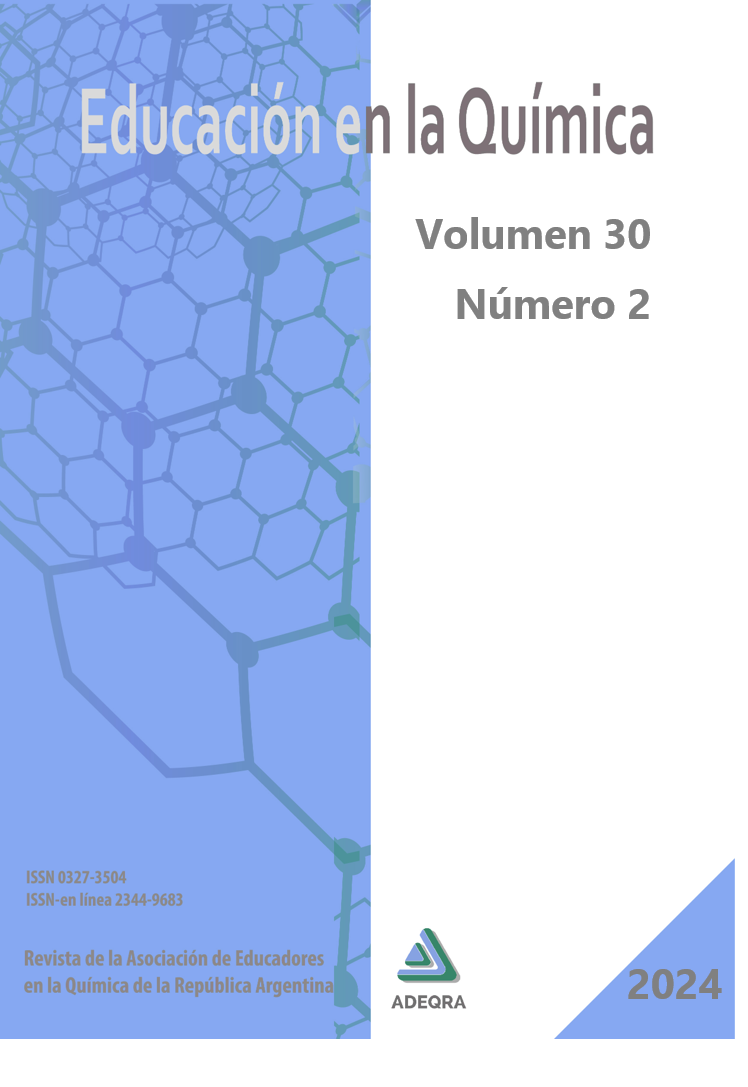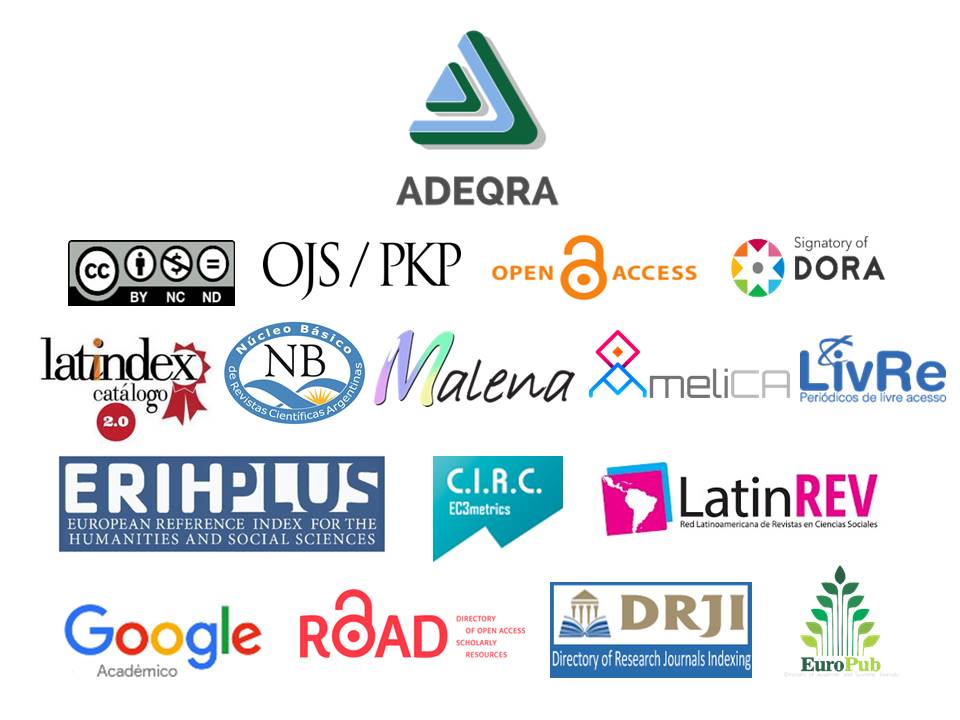The pruning waste valorization workshop as a space for articulation between levels
Keywords:
articulation between secondary education and university, sustainable chemistry, pyrolysis, pruning wasteAbstract
This paper explores a didactic sequence carried out at the National University of the South to address sustainable waste management of pruning waste through the process of pyrolysis. The initiative is part of a University Extension Project, which includes a workshop course on formative practices in chemistry. The workshop responds to current educational challenges, such as the articulation between secondary and university education and the need for sustainability-oriented education. The activities combined virtual theoretical classes and face-to-face practical sessions, where students learned about pyrolysis and its applications, focusing on the analysis of the liquid product using techniques such as gas chromatography. The workshop not only promotes environmental awareness but also prepares students for the transition to higher education, familiarizing them with the university academic and technical environment.
References
Abeleo, A y Menéndez, G. (2018). Integración extensión e investigación: ¿otra manera de construir conocimientos? Enfoques, políticas y prácticas desde la Universidad Nacional del Litoral. Revista+E, Investigación y extensión universitaria, (9), 96-110. https://doi.org/10.14409/extension.v8i9.Jul-Dic.7849
Alao, M. A., Popoola, O. M. y Ayodele, T. R. (2022). Waste‐to‐energy nexus: An overview of technologies and implementation for sustainable development. Cleaner Energy Systems, 3, 100034. https://doi.org/10.1016/j.cles.2022.100034
Araújo, Y. R. V., de Góis, M. L., Junior, L. M. C. y Carvalho, M. (2018). Carbon footprint associated with four disposal scenarios for urban pruning waste. Environmental Science and Pollution Research, 25(2), 1863–1868. https://doi.org/10.1007/s11356-017-0613-y
Arneu Short, P., Espínola, S., Reyes, M.S. y Escobar, P. (2021). La multiplicidad de voces en la conformación y consolidación de propuestas extensionistas ligadas a la inclusión educativa. Cuadernos de Extensión Universitaria, 5, 95-113. https://doi.org/10.19137/cuadex-2021-05-05
Fahmy, T. Y. A., Fahmy, Y., Mobarak, F., El-Sakhawy, M. y Abou-Zeid, R. E. (2020). Biomass pyrolysis: past, present, and future. Environment, Development and Sustainability, 22(1), 17–32. https://doi.org/10.1007/s10668-018-0200-5
Giovannoni, E. y Fabietti, G. (2013). What is sustainability? A review of the concept and its applications. En: Busco, C., Frigo, M., Riccaboni, A., Quattrone, P. (eds). Integrated Reporting: Concepts and Cases that Redefine Corporate Accountability. Springer International Publishing. https://doi.org/10.1007/978-3-319-02168-3_2
Kazimierski, P., Hercel, P., Suchocki, T., Smoliński, J., Pladzyk, A., Kardaś, D., Łuczak, J. y Januszewicz, K. (2021). Pyrolysis of pruning residues from various types of orchards and pretreatment for energetic use of biochar. Materials, 14(11). https://doi.org/10.3390/ma14112969
Nin, M. C. (2019). La articulación de la Universidad y la Escuela secundaria. Desafíos educativos ante la agenda 2030. Huellas, 23(2), 193–198. https://doi.org/10.19137/huellas-2019-2318
Tomás, M. P. y Murga Menoyo, M. Á. (2020). El marco curricular de la Educación Secundaria Obligatoria: posibilidades para la formación de competencias en sostenibilidad. Revista Internacional de Comunicación y Desarrollo (RICD), 3(13), 90–109. https://doi.org/10.15304/ricd.3.13.7180
Published
How to Cite
Issue
Section
License
Copyright (c) 2024 Lisette Aime Ramirez, María S. Dambolena, Victoria S. Gutierrez

This work is licensed under a Creative Commons Attribution-NonCommercial-NoDerivatives 4.0 International License.



